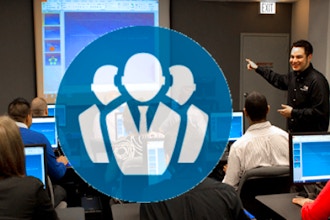ITIL is the most widely adopted approach for IT Service Management in the world. It provides a practical, no-nonsense framework for identifying, planning, delivering and supporting IT services to the business. This class prepares you to sit for the ITIL Foundation certificate exam.
Course Outline
Unit 1: Introduction
- Topic A: Course Objectives
- Topic B: Certification Requirements
- Topic C: ITIL Qualification Scheme
Unit 2: Service Management
- Topic A: Understanding Services
- Topic B: What Is ITIL?
- Topic C: Service Lifecycle
- Topic D: ITIL Processes and Functions
- Topic E: ITIL Roles and Responsibilities
- Topic F: ITIL Service and Process Roles
Unit 3: Service Strategy Overview
- Topic A: Overview of Service Strategy
- Topic B: Value of Services
- Topic C: Service Assets
- Topic D: Business Relationship Management
- Topic E: Service Portfolio Management
- Topic F: Demand Management
- Topic G: Financial Management for IT Services
Unit 4: Service Design Overview
- Topic A: Key Concepts
- Topic B: Design Coordination
- Topic C: Service Level Management
- Topic D: Service Catalog Management
- Topic E: Supplier Management
- Topic F: Availability Management
- Topic G: Capacity Management
- Topic H: Information Security Management
- Topic I: IT Service Continuity Management
Unit 5: Service Transition Overview
- Topic A: Transition Planning and Support
- Topic B: Service Asset and Configuration
- Management
- Topic C: Change Management
- Topic D: Release and Deployment
- Management
- Topic E: Knowledge Management
Unit 6: Service Operation Overview
- Topic A: Incident Management
- Topic B: Event Management
- Topic C: Problem Management
- Topic D: Access Management
- Topic E: Request Fulfillment
Unit 7: Service Operation Functions
- Topic A: Service Desk
- Topic B: Technical Management
- Topic C: Application Management
- Topic D: IT Operations Management
Unit 8: Continual Service Improvement
- Overview
- Topic A: Purpose, Value & Scope of Continual
- Service Improvement
- Topic B: Service Measurements & Metrics
- Topic C: Seven-step Improvement Process
Unit 9: Tools and Technology Considerations
Unit 10: Preparing For and Taking the
This course is available for "remote" learning and will be available to anyone with access to an internet device with a microphone (this includes most models of computers, tablets). Classes will take place with a "Live" instructor at the date/times listed below.
Upon registration, the instructor will send along additional information about how to log-on and participate in the class.



 CourseHorse Gift Card
CourseHorse Gift Card












